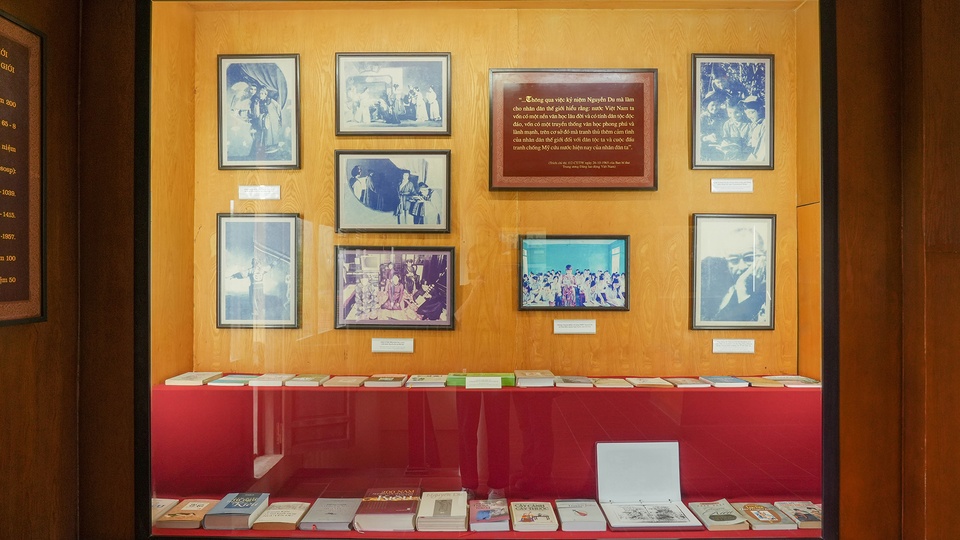
18. Nguyen Du and The Tale of Kieu in Vietnamese and World Literature
2063Ladies and gentlemen!
The immortal poem collection of Doan Truong Tan Thanh (meaning “A New Cry From a Broken Heart”), also known as The Tale of Kieu (or Kieu for short) by Nguyen Du, is one of the few great works of Vietnam and the world that has been loved by many people from ancient times to the present. From monarchs, intellectuals, scholars, professors, students, and pupils to common people, it has been memorized and enjoyed by all.
Since everyone loves Kieu, reads Kieu, and listens to Kieu, many woodcarvers have carved and woodblock-printed the work. The Tale of Kieu in Nom script has two popular versions called Kinh and Phuong. “Phuong” is the version by Pham Quy Thich, who revised several sentences in Nguyen Du's manuscript when the author showed it to him. After these revisions were finished, Pham Quy Thich had the entire work carved and woodblock-printed. On the other hand, “Kinh” is the version revised by Emperor Tu Duc, who then also ordered it carved and woodblock-printed. Cultural activities revolving around Kieu have also been created, such as: Commenting on Kieu, Quizzing Kieu, Interpreting Kieu, and Rearranging the verses of Kieu to make new meanings, with the most special being Fortune-telling using Kieu. The Tale of Kieu has also been brought to the stage in many forms of traditional Vietnamese theater, such as tuong, cheo, cai luong, and recently the choir.
Since its inception, the Tale of Kieu has caught the attention of researchers and story lovers in Vietnam and around the world, but to this day no one has been able to ascertain when exactly Nguyen Du wrote the Tale of Kieu.
There have been many documents, books, and newspapers written about Nguyen Du and The Tale of Kieu. The set of books displayed and preserved at the Memorial Site collects hundreds of thousands of articles by domestic and foreign researchers about Nguyen Du and The Tale of Kieu through different periods and in different scopes to honor a literary masterpiece and its author - the great national poet and world cultural figure Nguyen Du.




